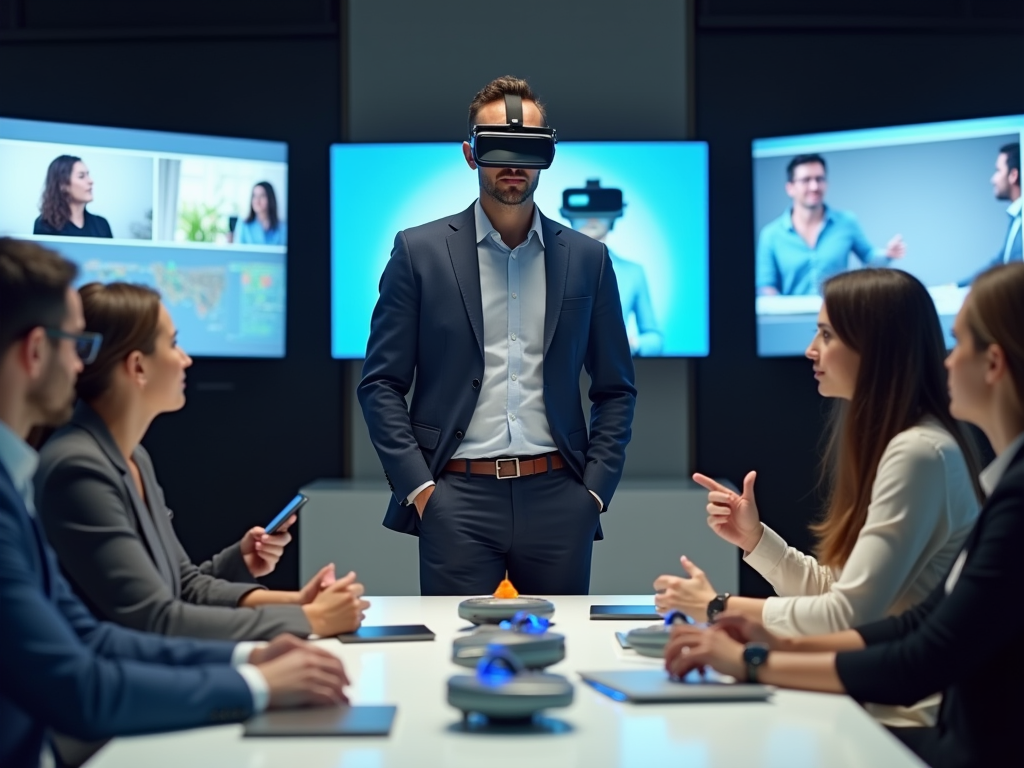Starting a Virtual Reality (VR) content development agency in Dubai offers a unique opportunity to tap into a rapidly growing market filled with innovation and creative possibilities. The city’s booming tech sector, combined with its strategic location, provides an ideal foundation for establishing a VR agency. In this article, we will explore the essential steps to get started, from market research and business planning to legal requirements and potential monetization strategies.
Understanding the Market Potential

Before launching your VR content development agency, it’s vital to conduct thorough market research to grasp the potential opportunities within Dubai’s VR landscape. The demand for immersive experiences has surged in various sectors, including education, real estate, entertainment, and tourism. Understanding your target audience and their needs will aid in tailoring your services effectively. You can begin by analyzing the following:
- Trends in VR technology and its applications
- Competitor analysis and service offerings
- Identifying potential clients within various industries
Additionally, attending industry conferences and networking events will expand your understanding of the area’s technological needs. Engaging with local entrepreneurs and businesses can uncover valuable insights into the types of VR content that resonate with clients in Dubai.
Creating a Business Plan

A well-crafted business plan serves as a roadmap for your agency, outlining your vision, goals, and strategies to achieve them. Key components of your plan should include:
- Executive Summary: A brief overview of your agency, highlighting your mission and vision.
- Market Analysis: Findings from your research about the competitive landscape.
- Service Offerings: Detailed descriptions of the services you will provide, like VR app development, VR content creation, and project management.
- Marketing Strategy: Methods for reaching potential clients, including social media marketing and SEO strategies.
- Financial Projections: Estimations of startup costs, revenue, and profitability over several years.
By clearly outlining your goals and strategies, your business plan will also serve as an essential tool for attracting investors or securing financing.
Legal Requirements and Registration
Once you have a solid business plan, the next step is to address the legal requirements for establishing your agency in Dubai. Various licenses and permits will be necessary to operate legally. Here are the steps to take:
- Choose a business structure (e.g., LLC, Free Zone Entity)
- Register your business name and obtain necessary licenses from the Department of Economic Development (DED)
- Comply with local regulations and regulations regarding data protection and intellectual property
- Set up a business bank account and bookkeeping systems
Understanding the legal landscape will protect you against potential fines and ensure a smooth operation for your agency. Consider consulting with a local business advisor or attorney specializing in corporate law to guide you through this process.
Building a Skilled Team
The success of your VR content development agency largely depends on the talent you bring on board. As the field of virtual reality is intricate and requires specific skill sets, focusing on hiring individuals with the following qualifications is crucial:
- 3D artists and animators
- Game developers with VR experience
- UX/UI designers
- Marketing specialists with knowledge of SEO and digital strategies
- Project managers with experience in VR project delivery
Investing in continuous training and development for your team will also keep your agency at the forefront of emerging technologies. Building a culture of collaboration and creativity will ensure your agency continually delivers innovative and high-quality VR content.
Monetization Strategies for Your Agency
Identifying effective monetization strategies is paramount for sustaining your VR content development agency. Several avenues can be explored to generate revenue, including:
- Custom VR content development for businesses and brands
- Subscription-based services for ongoing content creation
- Partnerships with educational institutions to develop training programs
- Selling VR applications and experiences through platforms like the Oculus Store or Steam
- Consultation services for businesses looking to enhance their VR knowledge and solutions
Furthermore, diversifying your service offerings will help your agency adapt to fluctuations in market demand and client preferences.
Conclusion
Starting a Virtual Reality content development agency in Dubai can be a rewarding venture if approached strategically. By understanding market trends, crafting a solid business plan, ensuring compliance with legal requirements, building a skilled team, and implementing effective monetization strategies, you position your agency for success in an exciting industry. As VR continues to evolve, staying innovative and responsive to market changes will ensure your agency remains relevant and competitive.
Frequently Asked Questions
1. What are the initial costs involved in starting a VR content development agency in Dubai?
The initial costs can vary widely, but key expenses typically include business registration fees, office space rental, equipment and software purchases, and marketing expenditures. It’s advisable to create a detailed budget in your business plan to accurately estimate these costs.
2. Is it necessary to have a background in technology to start a VR agency?
While a technical background can be beneficial, it is not necessary. Building a diverse team with varied skills can help bridge any knowledge gaps. A strong leadership and strategic vision can guide non-technical founders through the process.
3. How important is networking in the VR industry?
Networking is crucial in the VR industry, as it opens doors to partnerships, collaborations, and client opportunities. Attending industry events and joining local tech groups can facilitate valuable connections.
4. What types of clients typically seek VR content development services?
Clients often come from various sectors such as real estate, education, healthcare, tourism, and entertainment. Each industry has unique requirements for VR content, providing a broad market to tap into.
5. How can I keep up with VR industry trends?
Staying current with industry trends can be achieved by following leading publications, attending conferences, and engaging with online communities that focus on VR technology. Continuous learning and adaptation will keep your agency competitive.
